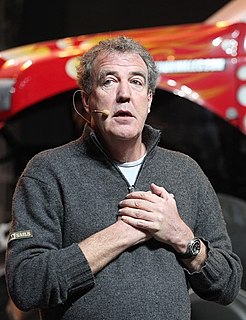A Quote by Annalee Newitz
Cities should function more like ecosystems, or even metabolisms. When we build, we should be thinking about how we can integrate into the ecosystems around us, but without sacrificing all the niceties of civilization like good restaurants, concert halls, and high-speed Internet access. I'm saying that partly tongue-in-cheek, but I'm also deadly serious. The future of technology is sustainable ecology.
Quote Topics
About
Access
Also
Around
Build
Cheek
Cities
Civilization
Concert
Concert Hall
Deadly
Ecology
Ecosystems
Even
Function
Future
Good
Halls
High
High-Speed
How
Integrate
Internet
Internet Access
Like
More
Niceties
Partly
Restaurants
Saying
Serious
Should
Speed
Sustainable
Technology
Thinking
Tongue
Tongue-In-Cheek
Us
Without
Related Quotes
High-speed Internet access won't stop future superstorms and it won't solve all the unfairness that low-income New Yorkers face. But with strong alliances between community members, local nonprofits, businesses and technology experts, it will bring affordable, local innovation that helps us build stronger, fairer and more resilient communities.
Imagining the world without us is a recipe for despair and paralysis. I actually think it's more helpful to imagine the world before us, to look back at those unstable ecosystems of the Triassic and realize that were in another phase of unstable ecosystems. Knowing that, demystifying our situation as it were, makes it easier to think about solutions. We are not looking into the unknown. The only thing unknown about the situation is how we're going to fix it, and when.
Permaculture is the conscious design and maintenance of agriculturally productive ecosystems which have the diversity, stability, and resilience of natural ecosystems. It is the harmonious integration of landscape and people providing their food, energy, shelter and other material and non-material needs in a sustainable way. Without permanent agriculture there is no possibility of a stable social order.
We should not be living in human communities that enclose tiny preserved ecosystems within them. Human communities should be maintained in small population enclaves within linked wilderness ecosystems. No human community should be larger than 20,000 people and separated from other communities by wilderness areas. Communication systems can link the communities.
If the life-supporting ecosystems of the planet are to survive for future generations, the consumer society will have to dramatically curtail its use of resources - partly by shifting to high-quality, low-input durable goods and partly by seeking fulfillment through leisure, human relationships, and other nonmaterial avenues. We in the consumer society will have to live a technologically sophisticated version of the life-style currently practiced lower on the economic ladder.
Woody Allen once said: "You know there must be intelligent life in space. The question is do they have good Chinese restaurants and do they deliver?" Which is really a joke, but it is also a very profound remark. When you say do they have good Chinese restaurants, what you're really saying is, "How much are they like us?" And when you say, "Do they deliver?" you're saying, "Can they get here?" Both of which are profound questions. And at the present, we have no answers.
A recent review of different agricultural options for the future was conducted by a panel of experts. The scientists posed the question: How are we going to feed the world when there are nine billion people on it, as there will be by 2050? And the answer they came up with was industrial agriculture won't work and genetic engineering won't work and the solution is going to be sustainable, and going to ecological kinds of farming that are based on local environmental conditions that work with local ecosystems available to develop a richer kind of farming technology.































